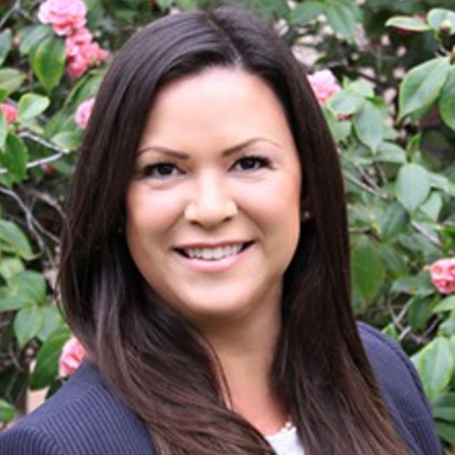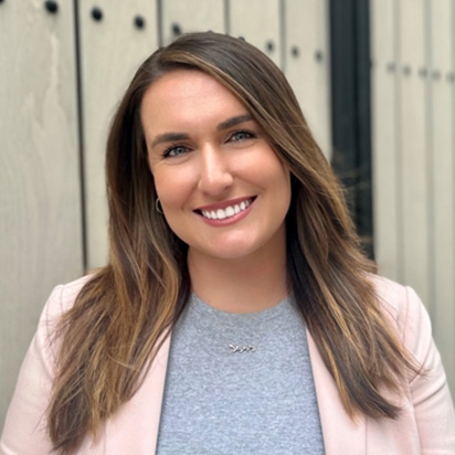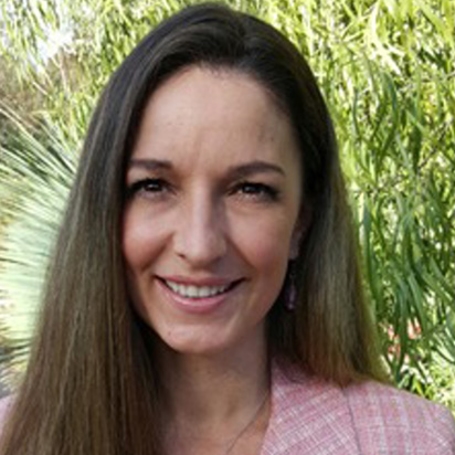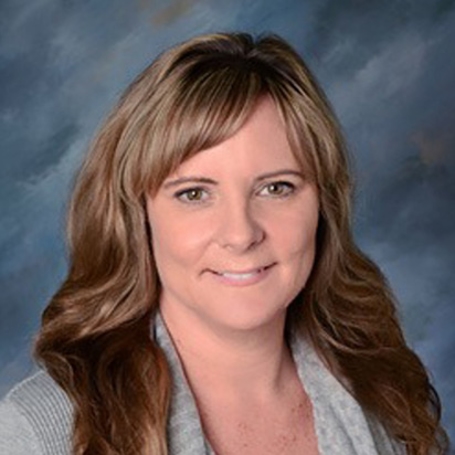


San Diego Elder Abuse & Nursing Home Abuse Lawyer
Advocating for Elder & Nursing Home Abuse Victims in San Diego, CA
Although senior citizens are some of the most respected members of society, they are also some of the most vulnerable. Many of our elders are common targets for intense abuse—whether it’s at a nursing home facility, in a hospital, or even in the comfort of their homes.
If your loved one has been a victim of elder abuse, please contact Bryant Dieringer & Wilson, LLP today to discuss your case. As a prominent elder abuse lawyer in San Diego, he will fight for your loved one’s right to fair compensation for their damages.
The team at Bryant Dieringer & Wilson, LLP is dedicated to guarding the rights of the elderly and having them treated with dignity and respect. We understand how devastating it can be to discover a loved one has been abused, which is why we work diligently to resolve these cases effectively. Our client-focused approach provides families with compassionate guidance through each step of the legal process and that every claim is pursued with the highest levels of integrity and service.
Call (619) 693-4900 to learn how our elder and nursing home abuse attorney in San Diego can help you.
In Their Own Words
-
"Mr. Bryant and his staff were always available to answer our questions and concerns."Eugenia A.
-
"Joel used creativity and attention to details of complex corporate matters to move the case to settlement within six months of filing."Robert H.
-
"They were very professional, honest, compassionate, and supportive."Brent R.
What Is Elder Abuse?
Elder abuse involves any harm or neglect imposed upon an older adult, typically over 65 years old. This harm can be physical, but it can also occur in the form of financial harm via fraud or exploitation.
Elder abuse typically occurs because, as adults get older, they are less able to take care of themselves. As they get weaker, they often require assisted living care, either by nursing home facilities, hospitals, or at-home care by loved ones. It is during this period that they are most open to mistreatment, as attempts to take advantage of them may be met with minimal resistance.
Types of Elder Abuse
It is important to note that elder abuse does not always mean physical harm—that is just one type of elder abuse.
Some of the most common types of elder abuse include:
- Physical abuse. This involves the use of physical force that results in pain or injury. Since seniors are often physically frail, even seemingly "minor" acts of aggression can cause serious harm. Physical abuse can stem from caregiver frustration, but no circumstance justifies harming a vulnerable person.
- Sexual abuse. Sexual abuse includes any non-consensual sexual contact or behavior directed at an elderly person. Those who are especially weak or have mental ailments have a higher likelihood of being a survivor of sexual assault.
- Financial abuse. This occurs when someone illegally or improperly uses an elder’s money, property, or assets. It can involve coercing or tricking the person into signing over power of attorney or other legal control. Family members can sometimes be perpetrators, exploiting the elder’s trust and vulnerability.
- Abandonment & neglect. The neglect of an elderly person also constitutes abuse, especially in cases involving nursing homes. Ignoring an elderly person’s needs for proper nutrition, care, and medications can significantly impact their health, causing illnesses and other complications that may be fatal.
Signs of Elder Abuse & Neglect
It can be challenging to uncover abuse and neglect in nursing homes, hospitals, and other living facilities. Some elderly individuals may have debilitating physical or mental disabilities that prevent them from accurately conveying their experiences to their loved ones.
Common signs that may indicate your loved one is a victim of abuse and/or assault include:
- Unexplained cuts, bruises, and other injuries
- Sudden changes in mood
- Symptoms of depression or anxiety
- Withdrawal from family members
- Sudden loss of weight and poor personal hygiene
- Bedsores
- Sudden changes in possessions, property, or financial accounts
Another sign can be nursing homes that object to seeing your loved one or otherwise do not allow your loved one to be alone with you. If you notice any of these signals of abuse or neglect, don't hesitate to report the abuse to the local Adult Protective Services (APS) or call 911 if there is an immediate emergency.
What Is the Statute of Limitations for Elderly Abuse in California?
There are a few statutes of limitations that individuals need to be aware of when it comes to these cases. First, the personal injury statute of limitations in California is two years from the date an injury occurs. If an individual or their representative fails to file a lawsuit against the alleged abuser within this time frame, they will likely be unable to recover compensation.
However, if the nursing home abuse revolves around medical malpractice, the statute of limitations is one year after the plaintiff discovers or should have discovered the injury or three years from the date the injury occurred.
It is crucial for family members to file these claims on time in civil court. Our skilled San Diego elder abuse attorney can get involved in these claims very early and fully investigate the situation. We can make sure that your case is filed on time and appropriately.
Compensation Available for Elder Abuse & Nursing Home Abuse Claims
If your loved one has been abused, either physically or emotionally, at the hands of a nursing home employee or as a result of systemic failures at a facility, we encourage you to reach out to an attorney as soon as possible. Bryant Dieringer & Wilson, LLP Works diligently to recover various types of compensation on behalf of every client that he helps.
Types of compensation can include:
- Coverage of any medical expenses arising due to the abuse
- The cost of stay at the nursing home facility
- The cost of relocating to a new facility
- Emotional distress damages
- Loss of quality of life damages
The total amount of compensation available to nursing home abuse victims will vary depending on the facts related to each particular situation. Some elements that can affect how much compensation is available include the severity of any injuries, the documented level of pain and suffering, insurance limitations of the nursing home, and more.
Understanding California's Elder Abuse Laws
California takes a firm stand against elder abuse, with specific laws designed to protect older adults from various forms of mistreatment. The Elder Abuse and Dependent Adult Civil Protection Act serves as a crucial legal framework outlining protections against abuse. San Diego elder abuse attorneys often utilize these laws to build strong claims on behalf of their clients by making sure that every aspect of the abuse is carefully documented and addressed.
Another essential piece of legislation is the Welfare and Institutions Code Section 15630, which mandates that certain professionals, such as healthcare providers and social workers, are required to report suspected elder abuse. This duty to report is pivotal in detecting abuse cases early and preventing further harm. By working closely with our knowledgeable San Diego elder abuse attorney, victims and their families can effectively navigate these legal paths and protect their rights.
How Often Does Nursing Home Abuse Occur in San Diego?
When we turn to data available from the National Council on Aging, we can see that around one out of every ten Americans over the age of 60 have experienced some form of elder abuse. There are some studies that show that as many as five million elders are abused each year in the United States. Unfortunately, this data is likely not completely accurate. There are studies that estimate that only one out of every 24 cases of elder abuse are reported to appropriate authorities.
Looking at this data, there is no reason for us to expect the statistics for San Diego and California to be any different than the rest of the country. There are many nursing homes located in our area, and it is crucial for friends and family members to be aware that abuse can occur at any of them.
You can go to the nursing home rating website available through Medicare to search local nursing homes. This website will give ratings based on health inspections, staffing, and quality of resident care measures. You will also be able to see if a nursing home has a verified case of abuse within the last year.
Why Choose Bryant Dieringer & Wilson, LLP?
Bryant Dieringer & Wilson, LLP is a well-established litigation firm focused on elder law in San Diego. Choosing Bryant Dieringer & Wilson, LLP means putting seasoned and compassionate elder abuse lawyers on your side.
Clients choose Bryant Dieringer & Wilson, LLP for the following reasons:
- Known as the California Elder Abuse Attorney, Joel R. Bryant has extensive experience helping those over 65 who are victims of abuse in nursing homes, hospitals, and other troubling situations.
- He understands the urgency of your situation, so he works quickly to provide fast, efficient legal help and compensation as soon as possible.
- He represents most clients on a contingency fee basis, meaning there are no upfront costs, and you are only obligated to pay for his services if he secures a favorable verdict or settlement on your behalf. If he doesn’t win, you don’t have to pay.
Consult With a San Diego Elder Abuse & Nursing Home Abuse Attorney
If you suspect that your loved one is a victim of elder or nursing home abuse, please consult with our experienced lawyer in San Diego County as soon as possible. At Bryant Dieringer & Wilson, LLP, we aim to assist victims of elder abuse in Southern California as soon as possible. Once we have the details of the situation, we take action immediately towards litigation and compensation.
Our process includes:
- Investigating your situation, gathering any evidence that can substantiate your case
- Seeking out medical professionals who can help substantiate any signs of abuse
- Determining the value of your loved one’s claim
- Fighting for your loved one’s well-being in the courtroom
- Taking your case to trial if we are not satisfied with any negotiations or settlements
We understand that litigation and eventual compensation will never replace the pain and suffering experienced by your loved ones. However, it can help you and your loved one to seek the help necessary to make a full recovery. Additionally, our San Diego elder abuse lawyers pursue the maximum possible compensation to hold any negligent parties fully accountable for their despicable actions toward elderly persons.
Don't hesitate to contact our elder abuse and nursing home abuse lawyer in San Diego. Call (619) 693-4900 or send us an online message to get started.
Frequently Asked Questions About Elder Abuse in San Diego
How Can I Report Elder Abuse in San Diego?
To report elder abuse in San Diego, individuals can contact APS at the County of San Diego Health and Human Services Agency by dialing 1-800-339-4661. Reports can be made 24/7. Additionally, emergencies should be reported directly to law enforcement by calling 911. For non-emergencies, contacting local elder advocacy groups can also be a beneficial step in maintaining the safety and well-being of elderly victims. It's imperative to act swiftly if elder abuse is suspected to protect the individual from further harm.
Why Is Having a San Diego Elder Abuse Lawyer Important?
An experienced elder abuse lawyer in San Diego plays a critical role in navigating the complexities of elder law and pursuing the justice that victims deserve. With specific knowledge of local laws and resources, these attorneys can effectively investigate claims, gather supportive evidence, and advocate for clients in court. They offer strategic counsel on the best course of action, whether pursuing settlements or going to trial. Additionally, they provide compassionate support to families during emotionally challenging times, making it easier to address the legal and personal aspects of elder abuse situations.
What Steps Can Be Taken to Avoid Elder Abuse?
Avoiding elder abuse requires a proactive approach encompassing both individual and community efforts. Families should maintain regular contact with elderly relatives, involving them in social activities to prevent isolation, a common precursor to abuse. Be sure to research nursing homes and their ratings before considering moving your loved ones there, and don't hesitate to inquire about their practices. Additionally, legal measures like power of attorney and advanced healthcare directives should be set in place to protect seniors' financial and medical decisions, ensuring their preferences are respected.






